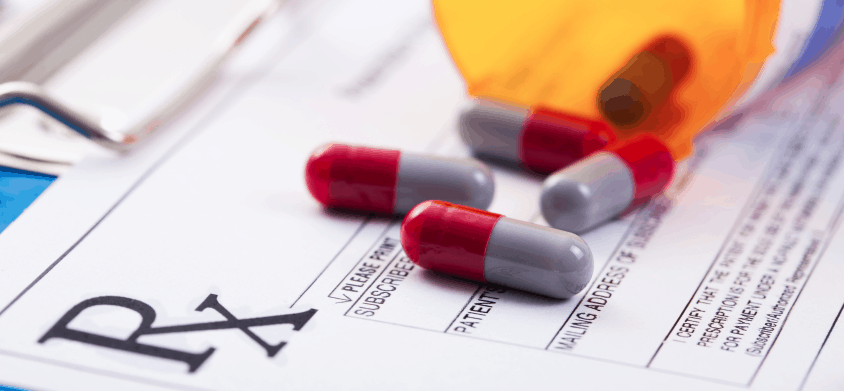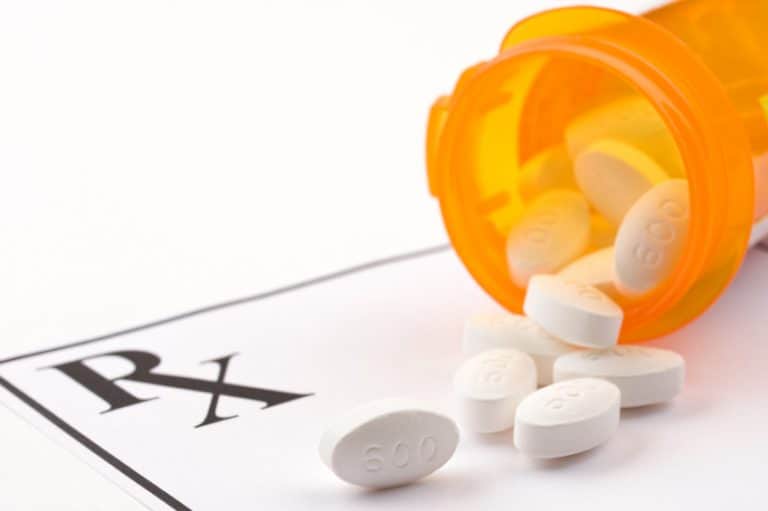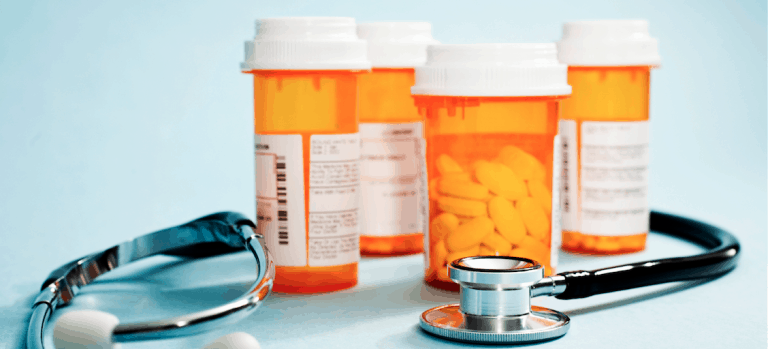Cipro (SIP-row)
Cipro (ciprofloxacin [sip row FLOX a sin]) is a fluoroquinolone antibiotic treatment that you can take for acute bacterial or chronic bacterial prostatitis.
Cipro Warnings
Cipro and other fluoroquinolones contain a black box warning such as the following:
WARNING:
Fluoroquinolones, including CIPRO, are associated with an increased risk of tendinitis and tendon rupture in all ages. This risk is further increased in older patients usually over 60 years of age, in patients taking corticosteroid drugs, and in patients with kidney, heart or lung transplants.
Fluoroquinolones, including CIPRO, may exacerbate muscle weakness in persons with myasthenia gravis. Avoid CIPRO in patients with known history of myasthenia gravis.
Before you take Cipro there are several important warnings and potential side effects you should be aware of. Black box warnings are used by the FDA to communicate important prescribing information to you and your healthcare provider. The FDA considers this essential information to know before taking a medication. The black box warnings for Cipro and other flouroquinolones include risk of tendinitis and nerve damage.
Cipro can cause:
- Tendinitis: inflammation of the tissue that connects muscle to bone.
- Tendon rupture: a separation or tearing of the tissue connecting muscle to bone.
- Tendon swelling, especially in the Achilles’ tendon area of the heel
These conditions can occur at any age, but are more common in patients over the age of 60, patients who take steroid medications, and people who have a kidney, heart, or lung transplant. Additionally, you need to let you doctor know if you are on any steroid medications that also increase risk of tendinitis such as Decadron/Dexpak (dexamethasone), Medrol (methylprednisolone), or prednisone.
Make sure to let your doctor know if you experience any symptoms of tendinitis such as pain, swelling, tenderness, stiffness of a muscle or joint.
Stop taking Cipro for Prostatitis and see a doctor immediately if you:
- Feel or hear a pop in a tendon area
- Bruise in a tendon area after an injury
- Experience severe pain or are not able to bear weight on an affected area
Peripheral neuropathy, or nerve damage, can sometimes occur within the first few days of starting Cipro. Most patients describe this as a pain, tingling, or numbness in the arms or legs, but any muscle group can be affected. Some people experience a change in ability to light touch, pain, cold, or heat. The neuropathy generally resolves if stopped, but can result in permanent damage if it is not. Sometimes the nerve damage does not go away even after you stop taking the medication.
Cipro also may worsen myasthenia gravis, a neuromuscular disease characterized by muscle weakness, so make sure to tell you doctor if you have this condition. If you experience muscle weakness after taking Cipro, seek medical care immediately.
Before taking Cipro, tell your doctor if you have any of the following:
- Heart rhythm disorder
- Tendon problems
- Arthritis
- Muscle or nerve disorder
- Kidney or liver disease
- Epilepsy
- Diabetes
- Take blood thinners
Why Is Cipro Prescribed for Prostatitis?
Cipro is an antibiotic in the fluoroquinolone class used to treat the common bacterial infections associated with prostatitis including:
- Escherichia coli —most common (55–85%)
- Proteus species — (3 to 5%)
- Other Enterobacteriaceae such as Klebsiella, Enterobacter, and Serratia species (3 to 10%)
- Pseudomonas aeruginosa (3 to 7%)
How Should Cipro Be Used?
Cipro comes in the following formulations:
- Tablet that can be taken multiple times per day or an extended release tablet taken once per day. While the extended release may be more expensive, there is increased likelihood that you will take all doses
- Liquid
- Intravenous or administered through an IV.
Do not crush, split, or chew Cipro tablets. If you cannot swallow pills whole you should ask your doctor for the liquid formulation.
If you are using the liquid formulation you need to make sure that you vigorously shake the bottle. Failure to do so can cause you to not receive enough actual antibiotic as the antibiotic solution settles.
While there are no guidelines for an exact duration of therapy, many providers favor longer duration (e.g., 4–6 weeks especially if you required hospitalization) because Cipro has a difficult time reaching an inflamed prostate gland. You need to make sure that you take all of your antibiotics.
Other Uses for Cipro
In addition to taking Cipro for prostatitis, Cipro is used in the treatment of some uncommon infections such as plague, tularemia, and anthrax . It is also used for the treatment of some respiratory infections, urinary tract infections, skin infections, and infections of the bone and abdomen.
Do I Need to Follow Special Precautions?
If you have ever had a reaction to Cipro or other fluoroquinolone antibiotics you need to let your doctor know. If you had an allergic reaction to another fluoroquinolone, you should not take Cipro for prostatitis. Examples of other fluoroquinolones include:
- Factive (gemifloxacin)
- Levaquin (levofloxacin)
- Avelox (moxifloxacin)
Make sure that you tell your doctor about any other medications you may be taking. Cipro is not a good choice for prostatitis if you are being treated with anticoagulation medication like Coumadin (warfarin) or certain treatment for an irregular heart rhythm with drugs such as Cordarone (amiodarone) or Norpace (disopyramide).
Cipro should not be used with theophylline or Zanaflex (tizanidine HCl) due to serious and fatal reactions in patients involving Cipro and these drugs together.
If you take certain other medications such as antacids, certain HIV medications Videx (didanosine), or vitamin supplements you cannot take Cipro with them as it may make the Cipro ineffective.
Avoid prolonged exposure to the sun, and make sure to wear protection if you do go out into the sun. Cipro can make your skin more sensitive to sunlight (real or the tanning bed kind) that can lead to a blistering like sunburn.
Cipro can alter your sensorium leading to confusion, dizziness, or lightheadedness. Make sure you know how it affects you before driving a car, operating machinery where injury is possible, or getting up on a ladder.
Do I Need to Follow a Special Diet When Taking Cipro?
Cipro can exaggerate the stimulation produced by caffeine, causing nervousness, sleeplessness, heart pounding, or anxiety. Limiting caffeine-containing products like soda, coffee, and tea is advisable.
What If I Forget a Dose?
If you forget a dose when taking Cipro for prostatitis, take the missed dose as soon as possible. If you are close to the next dose do not double the dose and continue on the regular dosing schedule until all of the antibiotic is gone. Do not take more than two regular tablets or one extended-release tablet per day.
Are There Side Effects When Taking Cipro for Prostatitis?
All drugs have side effects. Common side effects that you should tell your doctor about if they last more than a couple of days include:
- Abdominal or stomach pain
- Diarrhea
- Headache
- Heartburn
- Nausea or sick at your stomach
- Urinary frequency
- Vaginal discomfort or discharge
- Vomiting
More serious side effects include (see also the previously mentioned warnings at the beginning of this article) the following:
- Anxiety
- Breathing trouble or wheezing
- Confusion or altered mental state
- Depression
- Jaundice or yellowing of the eyes
- Passing out after taking Cipro
- Rapid heart rate
- Rash or blistering
- Severe or bloody diarrhea
- Throat tightness or hoarseness
Stop taking Cipro and call your doctor immediately if you experience:
- Fever
- Hives
- Itching
- Peeling or blistering of the skin
- Swelling of the eyes, face, mouth, lips, tongue, throat, hands, feet, ankles or lower legs
- Hoarseness
- Difficulty breathing or swallowing
- Fast heartbeat
- Fainting
- Loss of consciousness
- Yellowing of the skin or eyes
- Dark urine
- Decreased urination
- Seizures
- Unusual bruising or bleeding
- Joint or muscle pain
Does Cipro Have Special Storage Instructions?
Tablets should not be stored in extremes of heat or cold and do fine at room temperature. Most physicians recommend the liquid be stored in the refrigerator, but make sure it does not freeze. It is also okay to keep at room temperature for 14 days. When you complete 14 days of treatment, any left over liquid medication should be thrown away.
What Do I Do in Case of an Accidental Overdose?
If you take too many pills call your local poison control center. If someone has taken an overdose and is not breathing or is not able to communicate then call 911.
What Else Should I Know About Cipro for Prostatitis?
Make sure that you follow any instructions given to you by your doctor. You should not share your antibiotics and you should complete the entire course even if you feel dramatically better.







